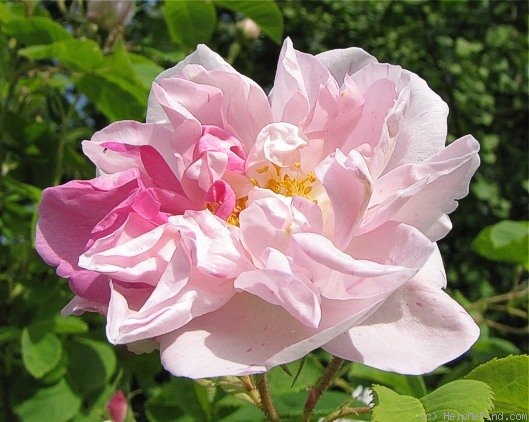|
|
'R. × damascena versicolor' rose Description

Photo courtesy of roselover
HMF Ratings:
84 favorite votes.
Average rating:
EXCELLENT-.
Bloom:
Pink blend, stripes. Strong fragrance. Average diameter 2.5". Semi-double to double bloom form. Once-blooming spring or summer.
Habit:
Armed with thorns / prickles.
Height: 5' to 7' (150 to 215cm). Width: 4' to 7' (120 to 215cm).
Growing:
USDA zone 3b and warmer. Shade tolerant.
Patents:
Patent status unknown (to HelpMeFind).
Notes:
An early reference from 1576 may relate to the breeding of 'York and Lancaster'.
A study in 2006 showed that 'Quatre Saisons Blanc Mousseux' is genetically identical to 'Kazanlik' and 'York and Lancaster'.
In Roses for English Gardens, Gertrude Jekyll refers to a Damask called 'Rosa Mundi' and says that it is also known by the name of 'Cottage Maid' and 'York and Lancaster'. Further, she says that 'York and Lancaster is also claimed for another striped rose of much less value.
Jules Gravereaux says that a Centifolia named York et Lancastre grew in Josephine's garden at Malmaison...
Redoute, Vol. I, Plate 137, Rosa damascena variegata
Mike Lowe gives this rose a date of 1629...
|